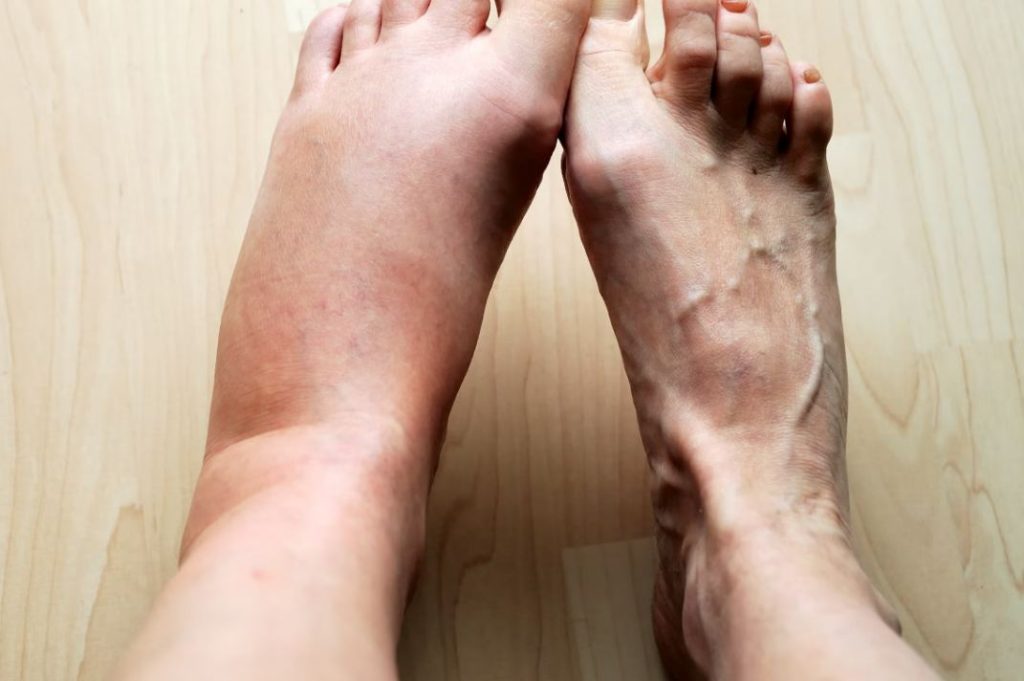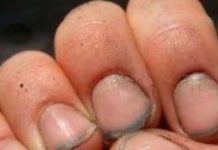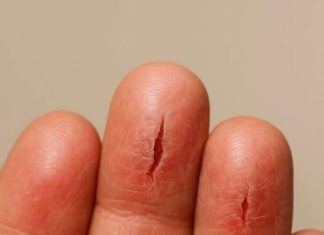Swelling in the feet and legs, also known as edema, is a common problem that can affect people of all ages. It can result from standing for long periods, sitting for too long, poor circulation, or a high-sodium diet. While persistent swelling may indicate an underlying medical condition, minor swelling can often be reduced with lifestyle adjustments, including diet. Certain nutrients play a key role in maintaining healthy fluid balance and circulation, helping to ease swelling naturally.
Potassium: Balancing Fluids
Potassium is an essential mineral that helps regulate fluid balance in the body. It works by reducing sodium levels, which can cause water retention. Foods rich in potassium, such as bananas, sweet potatoes, spinach, and avocados, can support the body’s ability to manage fluid. Including potassium-rich foods in your daily diet can make a noticeable difference in reducing puffiness in the feet and legs over time.

Magnesium: Supporting Circulation
Magnesium plays a vital role in supporting proper muscle function and blood circulation. Low magnesium levels are linked to swelling and inflammation. Leafy green vegetables, nuts, seeds, and whole grains are excellent sources of magnesium. Regular intake can help improve circulation, reduce water retention, and support overall vascular health, which is particularly beneficial for people who spend long hours on their feet.
Omega-3 Fatty Acids: Fighting Inflammation
Omega-3 fatty acids, commonly found in fatty fish like salmon, mackerel, and sardines, as well as in flaxseeds and walnuts, have powerful anti-inflammatory properties. Inflammation can exacerbate swelling in the extremities, and incorporating omega-3-rich foods into your diet may help reduce this effect. For individuals prone to edema, omega-3 fatty acids can help maintain healthier blood flow and lower inflammation levels, which may ease leg and foot swelling.
Vitamin C: Strengthening Blood Vessels
Vitamin C is well-known for its immune-boosting benefits, but it also supports collagen production and strengthens blood vessels. Stronger blood vessels can improve circulation and reduce the accumulation of fluid in the legs and feet. Citrus fruits, berries, bell peppers, and broccoli are excellent sources of vitamin C, and adding them to your meals can help maintain healthy circulation and minimize swelling.
Vitamin E: Reducing Fluid Retention
Vitamin E has antioxidant properties that help protect the cells and blood vessels from damage. By supporting the vascular system, vitamin E may assist in reducing fluid retention and swelling. Nuts, seeds, spinach, and vegetable oils are rich in vitamin E and can be incorporated into daily meals or snacks. This nutrient works well alongside other anti-inflammatory and circulation-supporting vitamins and minerals.
Practical Tips for Reducing Swelling
In addition to incorporating these nutrients, other strategies can help manage swelling:
- Elevate your legs when resting to improve blood flow.
- Avoid standing or sitting for long periods without movement.
- Wear comfortable footwear and compression socks if recommended by a healthcare professional.
- Drink plenty of water to help flush excess sodium and toxins.
- Combining these dietary and lifestyle adjustments provides a holistic approach to maintaining healthy circulation and reducing fluid buildup in the legs and feet.

Conclusion
Swelling in the feet and legs can be uncomfortable, but a nutrient-rich diet can help alleviate some of the discomfort. Potassium, magnesium, omega-3 fatty acids, vitamin C, and vitamin E all support circulation, reduce inflammation, and promote fluid balance. By making thoughtful choices in meals and incorporating these nutrients into your routine, you can naturally help minimize swelling and support overall leg and foot health. Small adjustments in diet and lifestyle can lead to noticeable improvements over time, promoting comfort and well-being in daily life.

















